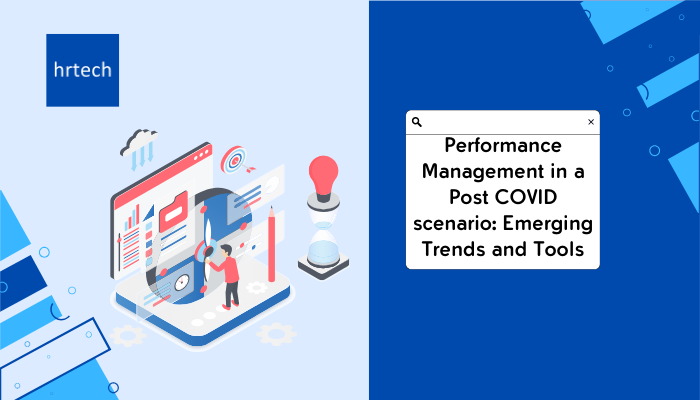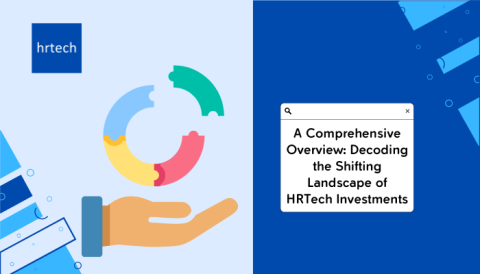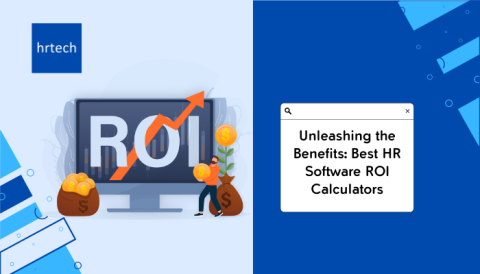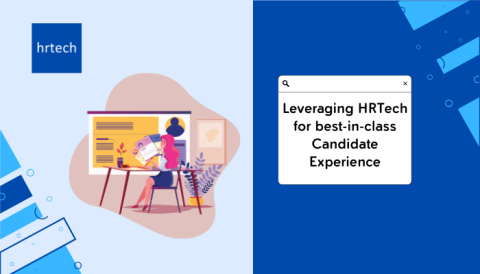PERFORMANCE drives ENGAGEMENT and not vice-versa. When people perform well, they get engaged. And that should be the key focus when HR teams re-design and revamp their performance management systems.
by Sriram Iyer, Founder & CEO, hrtech
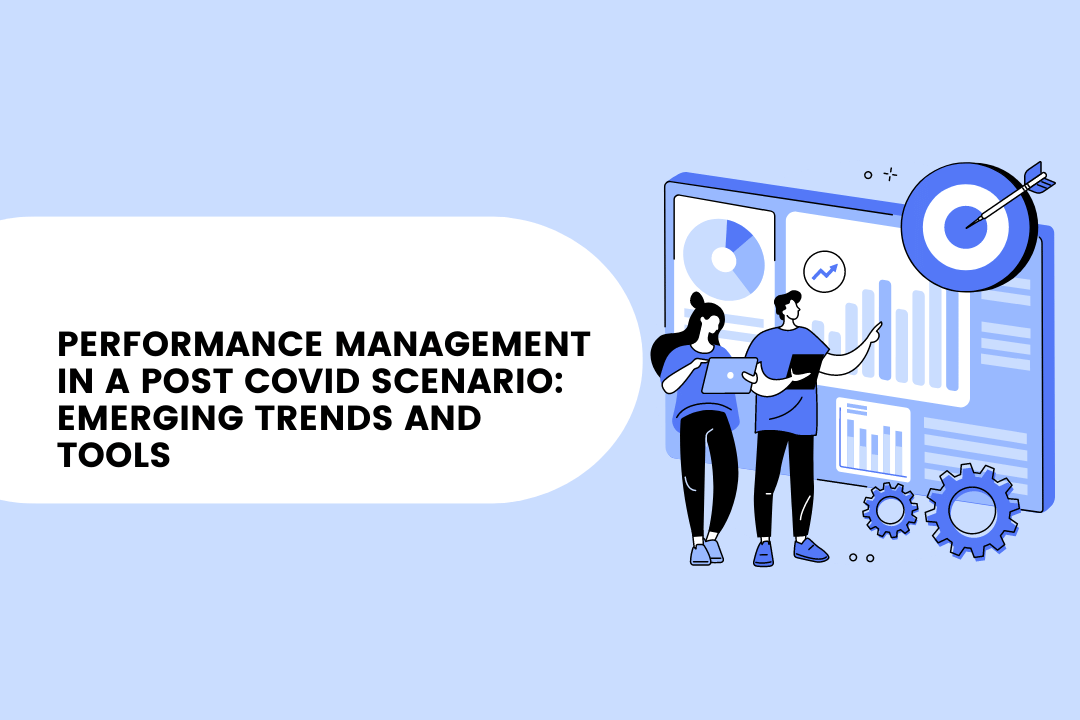
The key aspect of the HR function impacted by the pandemic is the Performance Management System (PMS). Infact, HR teams of all sizes are now forced to not only modify but also look at revamping them to meet the fast-changing business needs and evolving performance management trends.
HR teams in Singapore and across the world have already accepted remote and hybrid work culture as the new normal. As a result, there is an unprecedented demand for Digital HR adoption and HR teams are looking for new innovative systems to automate and digitalize their HR processes.
With remote and hybrid work culture becoming the new reality, personal living spaces have become the new workplaces. Hence, the emerging trends in performance management are focused on making the processes more decentralized, continuous and agile. Performance management in the post-COVID era will be led by tech-driven performance management tools and solutions.
The Pre-COVID Performance Management
Let’s have a look at what the world was saying about Performance Management and employee performance reviews in the pre-COVID era.
Only 14% of employees believed that their performance reviews actually helped them improve. – Gallup.
81% of HR leaders were considering changes to performance reviews in 2019. (The number jumped to 87% in 2020). – Gartner.
Nobody enjoys performance reviews. – CEB.
Emerging Trends in Performance Management
The pandemic, rise of digital HR technology, the dire need to revamp performance management process collectively contributed to the emergence of some key trends in performance management in Singapore and across the world.

1. “Annual Form-filling Event” To “Frequent Performance Conversations”
Employee Performance Appraisal is slowly undergoing the image of a once-in-a-blue-moon “Form Filling” event to a format of more Frequent Performance Conversations, real-time catch-ups and development conversations.
These conversations include questions like: What is happening? What is going well? What needs to be changed? What help is required? What more can be done to create a thriving work environment?
One of the most important trends in employee performance appraisal is regular communication. A Gallup survey concluded that employees whose managers regularly communicate with them are more engaged than those whose managers rarely interact with them.
Frequent reviews, instead of the stressful and cumbersome yearly reviews, have been found to increase employee engagement, reduce employee turnover, and improve employee satisfaction. This makes the entire employee performance and appraisal process more fruitful for the employee as well as the company.
2. “Closed-door” to “Remote, tech-based” Conversations
Discussions are shifting from closed-door to remote, technology-based conversations. Tech-powered continuous feedback allows companies to iterate and thereby improve on a continuous basis, giving businesses the much-needed flexibility to evolve and meet ever-changing customer needs.
HR digital technology plays a crucial role in helping companies stay in sync with the emerging trends in employee performance management.
Key Benefits of HR Technology in Performance Management
- Setting and tracking customized goals
- Instant assessment and recognition
- 360-degree feedback
- Prompt action on performance data
- Agility in re-crafting goals and KPIs
In addition to these benefits, big data algorithms can spot patterns that humans might not. AI capabilities can take you to the next step and provide employees with a quick roadmap to improve their performance and productivity.
3. “Focus on Process” to “Focus on Objectives”
Driving business outcomes through PMS is one of the key performance management trends in Singapore. The role of HR leaders becomes important in delivering the exact value that employees and businesses expect from the PMS.
HR teams should spend less time on simplifying the performance management process and instead focus on making it outcome-driven and result-oriented.
4. “Lack of Clarity” to “Continuous and Clear Communication”
There should be a continuous communication of the business needs, performance, employees’ goals and the related action plan to be implemented.
This is significantly different from earlier times when employees were unclear of the performance management process. HR teams must also communicate the rationale for customizing the employees’ goals in an open and transparent manner.
Employee performance management tools can help HR teams streamline the communication and appraisal process. This makes the PMS more transparent and effective.
5. “Manager” to “Mentor”
Giving real-time feedback to employees and acting when the information is fresh translates into coaching that helps employees leverage their strengths. In fact, mentorship or a coaching culture between managers and team members is becoming a key mandate of a high performing workplace of the future.
The mentorship culture is an emerging trend in performance management that instills trust amongst employees and they become more receptive to constructive feedback and improve their performance.
6. “Consumer” to “Creator”
There is an increased need for transfer of control of personal performance development from the HR teams and Managers to employees. HR and Management should ensure that employees are the creators, and not just the consumers, of broader performance redesigns.
Employees need to be provided with structured guidance and tools to individualize their performance management experiences and plans. Employees should be empowered to identify where their accountabilities intersect with others and construct a detailed collaboration strategy.
Performance Management Tools in Singapore
To stay up-to-the-minute with the emerging trends in Performance Management, the Singapore market is flooded with best-in-class performance management tools that can help enterprises of all sizes in making their PMS robust, agile, and continuous. Some of these tools include EngageRocket, entomo, Fitbots OKR, Flowyteam, Mesh, PeopleStrong, Profit.co and Synergita.
The Final Word
PERFORMANCE drives ENGAGEMENT and not vice-versa. When people perform well, they get engaged. That should be the primary focus when HR teams re-design and revamp their performance management systems.
The performance management trends will only improve the entire performance evaluation and appraisal process. This promises to pave the way for better employee experience, improved satisfaction and enhanced productivity.
Our Talent Advisory & Consulting team can provide a free 30-minute session about Performance Management trends and best practices. Block a time slot using this link: https://calendly.com/hrtechsg/30-minute-session
References:
- 2020 hrtech.sg Infographic on Performance Management Solution players in Singapore
- Redefining Performance Management to drive Impact . Source: Gartner –
https://www.gartner.com/smarterwithgartner/3-steps-performance-management-delivers/ - Reengineering Performance Management. Source: Gallup
https://www.gallup.com/workplace/238064/re-engineering-performance-management.aspx - Ezine. Source: Synergita
https://www.synergita.com/learn/ezine.html - PeopleStrong Alt Performance: Resources
https://www.peoplestrong.com/alt-performance/
About the Author:

Sriram Iyer is the founder & CEO of hrtech.sg, a Singapore- headquartered #hrtech market development and analyst firm. A Human Resources practitioner with over two decades of experience, he is also a Certified Strengths Coach and a passionate #hrtech advocate. In his career, he has played leadership roles with the Singtel Group Enterprise and Nasdaq-listed Cognizant Technology Solutions. LinkedIn
